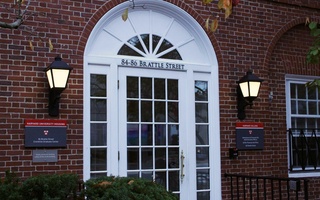Recently, Harvard Law School’s Library announced a partnership with Ravel Law, a California-based startup as part of its “Free the Law Project”, with the intention of digitizing Harvard’s extensive catalog of case law and making it available for free online. The end goal of the project is to provide a searchable collection of essential information that is available to all. By any standard, such information about the law ought to be readily available. It is good that Harvard as an institution is using its vast resources (second only to the Library of Congress in this field) as an equalizing force for attorneys at small firms, law students, incarcerated individuals, and the general public. At the same time, this development also serves as a reminder of the general inequality in access to important information, both legal and otherwise.
The digitization of the Law School’s collection of case law will provide relevant legal information to anyone who seeks it out, in a form that is greatly more accessible than what is currently available on the Internet. This will have immediate and tangible benefits from a legal perspective: It will save attorneys substantial time, effort, and money. Similar services already exist, but nearly always charge a subscription fee; the Harvard-Ravel project will create the largest and most complete free digital collection. In short, this project will benefit most those who have the fewest resources and need it the most. And while it is true that the project cannot fully replace existing paid services or place individual attorneys on equal footing with large firms that can afford software such as LexisNexis or Westlaw, it nevertheless provides an invaluable first step towards providing easier access to legal information.
Moreover, the benefits are not confined to attorneys. Because these cases will be made available for free online, the general public, students, and even incarcerated individuals will be able to study the law. Prisoners will be able to research precedents relevant to their cases; students will be able to find a greater volume of information without spending hours browsing through libraries and book depositories. All of these uses enforce the admirable nature of the University’s efforts to utilize its resources for the public good.
Nevertheless, even as we commend the Law School and Ravel Law, it is important to recognize the social context that necessitates it. The digitization of case law is an important first step in making information available to the wider public, but the inequality of access to information in the first place is lamentable. Case law is legally considered public domain—but while it is “available” for the public to read, all but the most important or politically charged cases are often difficult to access and only available online in inconvenient and unwieldy file formats. Even attorneys practicing at small firms may lack the resources to obtain the relevant law to their own cases. As a rule, public information ought to be truly public and accessible to the average person. The digitization effort by the Law School is an excellent first step towards making that happen, at least in the legal sphere.
Read more in Opinion
Don't Go Back on DiversityRecommended Articles
-
LAW CLUBS MEET IN AMES SEMI-FINALSAfter two years of preliminary work four teams have been selected to compete in the semi-finals of the Ames competition
-
Buying Off the JudiciaryThe pernicious effects of a dependence upon outside donors on the democratic process cannot be ignored.
-
Law School To Make U.S. Case Law Archive Public OnlineBy mid-2017, Harvard Law School’s entire collection of United States case law will be available for public search through new online legal platform, Ravel Law, which will provide for free the contents of its database for bulk access over the next eight years.
-
 Top DOJ Official Likely Involved in Harvard Admissions Probe
Top DOJ Official Likely Involved in Harvard Admissions Probe -
Black Harvard Student Arrested in April Will Face No Charges, Per AttorneysNo charges will be filed against the black Harvard undergraduate whose arrest April 13 sparked national controversy and allegations of police brutality, his attorneys announced Friday.













